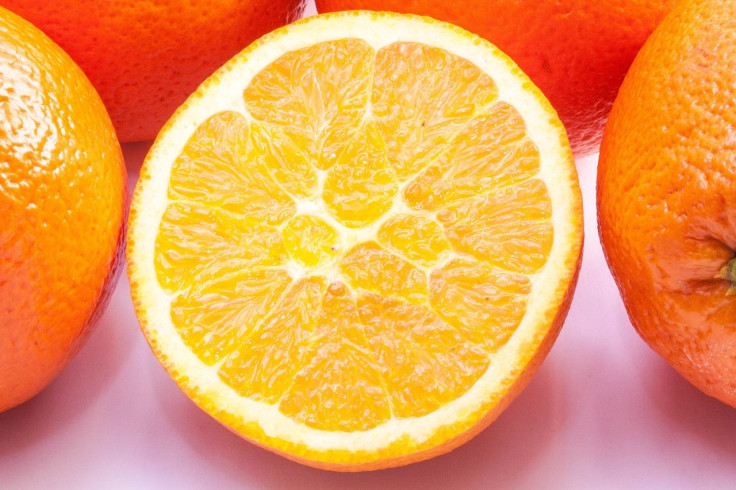A Healthy Diet Rich In Vitamin C May Lower Risk Of Cataracts By 20%

Cataracts are like a cloudy day, only the clouds are in your eyes. More than half of all Americans will develop a cataract or have cataract surgery by the time they turn 80. But according to a new study published in the journal Ophthalmology, a healthy diet of fruits and vegetables can help prevent the disease regardless of genetic predisposition.
The condition develops in the lens, which is the clear part of the eye that helps light travel into the back of the eye and create an image. Cataracts cloud the lens in the eye and affect vision, making it more difficult to see with age. According to the National Eye Institute, treating cataracts before it worsens is key to preventing it from spreading one eye to another.
For the study, a team of researchers from King’s College in London recruited approximately 1,000 pairs of female twins from the UK Twins registry. Each participant was about 60 years old when they filled out a detailed food questionnaire that measured their day-to-day nutrient intake.
Researchers used digital imaging to scan every participant’s eyes in order to measure their progression of cataracts. Those who regularly ate vitamin C and roughly two servings of fruit and of vegetables each day were 20 percent less likely to develop cataracts than those who ate a less nutritious diet.
Ten years later, researchers followed up with 324 of the twin pairs and found those who had originally reported eating more vitamin C in their diet were now at a 33 percent lower risk of developing cataracts compared to those who had eaten less vitamin C.
“The findings of this study could have significant impact, particularly for the ageing population globally by suggesting that simple dietary changes such as increased intake of fruit and vegetables as part of a healthier diet could help protect them from cataracts," said the study’s lead author Dr. Chris Hammond, the chair of ophthalmology at King's College, in a press release.
Unfortunately, you can’t just take a few vitamins every morning. Those who reaped the greatest protective benefits had been steadily eating at least twice the recommended daily allowance of fruits and veggies, which is 75 milligrams for women and 90 milligrams for men.
“We found no beneficial effect from supplements, only from the vitamin C in the diet,” Hammond said. ”This probably means that it is not just vitamin C but everything about a healthy diet that is good for us and good for aging.”
The researchers believe their twin study results indicate genetic factors account for roughly 35 percent of the risk for cataract progression, while environmental factors, like diet, make up roughly 65 percent of the risk. Switching to a diet high in vitamin C may act as eye protection and override genetics. Consider foods like oranges, red and green bell peppers, cantaloupe, papaya, kiwi, broccoli, and dark leafy greens.
Hammond concluded: “While we cannot avoid getting older, diabetes and smoking are also risk factors for this type of cataract, and so a healthy balanced diet and lifestyle generally should reduce the risk of needing a cataract operation.”
Source: Hammon CJ, Yonova-Doing E, and Gilbert CE, et al. Genetic and Dietary Factors Influencing the Progression of Nuclear Cataract. Ophthalmology. 2016.



























